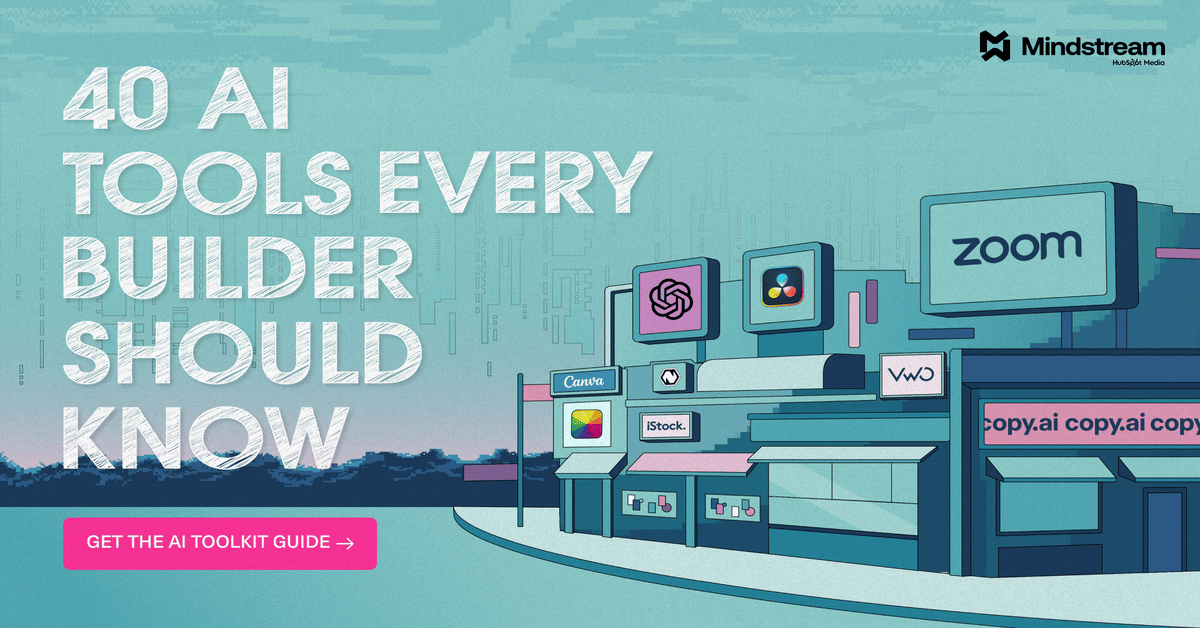- Generative AI Art
- Posts
- OpenAI cracks the AI hallucination code
OpenAI cracks the AI hallucination code
PLUS: Anthropic’s $1.5B payout and China Drops Trillion-Parameter Models
OpenAI has published new research pinpointing the cause of AI model hallucinations, tracing the issue directly back to the way models are trained. Their findings suggest current methods inadvertently encourage models to make confident guesses instead of admitting uncertainty.
This research reframes hallucinations from a mysterious flaw to a solvable training problem. By redesigning training to reward honesty over just accuracy, could this breakthrough finally lead to AI systems reliable enough for the most critical, fact-sensitive applications?
Today in AI:
OpenAI pinpoints the cause of AI hallucinations
China drops two trillion-parameter models
Anthropic's $1.5B copyright payout
PRESENTED BY MINDSTREAM
Choose the Right AI Tools
With thousands of AI tools available, how do you know which ones are worth your money? Subscribe to Mindstream and get our expert guide comparing 40+ popular AI tools. Discover which free options rival paid versions and when upgrading is essential. Stop overspending on tools you don't need and find the perfect AI stack for your workflow.
What’s new? OpenAI published new research identifying that AI models hallucinate because standard training methods reward them for confident guessing rather than admitting they don't know an answer.
What matters?
The paper argues current training creates a conflict for models, as scoring methods award full points for lucky guesses but zero for expressing uncertainty.
Counterintuitively, more advanced models can sometimes be more wrong; one test showed an updated OpenAI model hallucinated 33% of the time — double its predecessor.
Researchers propose redesigning evaluation metrics to explicitly penalize confident errors more than when a model correctly states its uncertainty.
Why it matters?
This research reframes the hallucination issue as a solvable training problem instead of a mysterious flaw. By incentivizing honesty over just accuracy, future AI models could become far more reliable for critical tasks that demand factual correctness.
What’s new? Chinese tech giants Alibaba and Moonshot AI both released new trillion-parameter models over a single weekend, showcasing a major acceleration in the global AI race while Western labs have remained quiet on new flagship releases.
Big news: Introducing Qwen3-Max-Preview (Instruct) — our biggest model yet, with over 1 trillion parameters! 🚀
Now available via Qwen Chat & Alibaba Cloud API.
Benchmarks show it beats our previous best, Qwen3-235B-A22B-2507. Internal tests + early user feedback confirm:
— Qwen (@Alibaba_Qwen)
3:43 PM • Sep 5, 2025
What matters?
Alibaba’s Qwen3-Max-Preview claims top performance on reasoning and coding tasks and offers a massive 262K token context window, allowing it to process large amounts of information at once.
Moonshot AI’s Kimi K2-Instruct uses a Mixture-of-Experts architecture, with 1 trillion total parameters but only 32 billion active at any given time, enabling powerful performance with greater efficiency.
This rapid release cycle from Chinese labs contrasts with the more deliberate pace of US counterparts and signals a strategic shift, as Alibaba has kept its new top model closed behind an API for the first time.
Why it matters?
The back-to-back releases from two of China's biggest AI players suggest the performance gap with Western labs is rapidly closing. This surge puts new pressure on companies like OpenAI and Google to accelerate their own development cycles to stay ahead.
PRESENTED BY PACASO
How 433 Investors Unlocked 400X Return Potential
Institutional investors back startups to unlock outsized returns. Regular investors have to wait. But not anymore. Thanks to regulatory updates, some companies are doing things differently.
Take Revolut. In 2016, 433 regular people invested an average of $2,730. Today? They got a 400X buyout offer from the company, as Revolut’s valuation increased 89,900% in the same timeframe.
Founded by a former Zillow exec, Pacaso’s co-ownership tech reshapes the $1.3T vacation home market. They’ve earned $110M+ in gross profit to date, including 41% YoY growth in 2024 alone. They even reserved the Nasdaq ticker PCSO.
The same institutional investors behind Uber, Venmo, and eBay backed Pacaso. And you can join them. But not for long. Pacaso’s investment opportunity ends September 18.
Paid advertisement for Pacaso’s Regulation A offering. Read the offering circular at invest.pacaso.com. Reserving a ticker symbol is not a guarantee that the company will go public. Listing on the NASDAQ is subject to approvals.
What’s new? Anthropic agreed to a landmark settlement to pay authors at least $1.5 billion. The class-action lawsuit is the first major payout from an AI company for using copyrighted works to train its models.
What matters?
The lawsuit stemmed from Anthropic downloading over 7 million pirated books from shadow libraries like LibGen to build the training dataset for Claude.
The settlement covers approximately 500,000 books at $3,000 per work and requires Anthropic to destroy all pirated files.
While the payout is substantial, it's cushioned by the company’s recent $183 billion valuation after a new $13 billion funding round.
Why it matters?
This payout establishes a significant financial precedent for using copyrighted data, sending a clear warning to AI labs about the high cost of training on pirated materials. The ruling specifically targets piracy, leaving the broader legal question of "fair use" for legally obtained content as the next major battleground.
Everything else in AI
Meta published details on REFRAG, a new framework that can speed up large language model inference by 30x and expand context windows 16x with no accuracy loss.
OpenAI projected a cash burn of $115B through 2029 due to soaring infrastructure costs, an $80B increase from its earlier forecasts.
Mistral is raising $1.7B in a new funding round led by chip equipment giant ASML, which will become its top shareholder and value the company at $11.7B.
Apple was sued by a group of authors in a class-action lawsuit alleging the company trained its OpenELM models on pirated books.
PRESENTED BY I HATE IT HERE
The best HR advice comes from those in the trenches. That’s what this is: real-world HR insights delivered in a newsletter from Hebba Youssef, a Chief People Officer who’s been there. Practical, real strategies with a dash of humor. Because HR shouldn’t be thankless—and you shouldn’t be alone in it.
Essential AI Guides - Reading List:
Your opinion matters!
What did you think of today's email?Before you go, please give your feedback to help us improve the content for you! |
Work with us
Reach 100k+ engaged Tech Professionals, Engineers, Managers and decision makers. Join brands like MorningBrew, HubSpot, Prezi, Nike, Ahref, Roku, 1440, Superhuman, and others in showcasing your product to our audience. Get in touch now →



